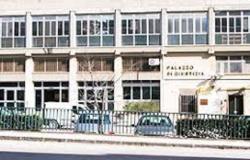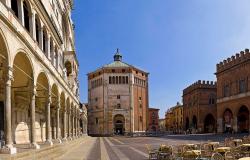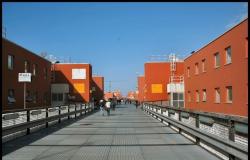
TURIN – It’s called “Travel Therapy” or “Train therapy” and is a non-pharmacological intervention adopted for promote the well-being of people living with Alzheimer’s disease and other forms of senile dementia.
The nuclei dedicated to the cognitive decline of Richelmy residence in Turin of the emeis group have been transformed, with a permanent renovation, into a real village: the corridors, common areas and rooms for visits have become the perfect reconstruction of a village, complete with shops, from food shops to haberdashery , from the post office to the newsstand, up to the Porta Nuova Turin station with its timetable and train carriages where virtual passengers can sit down for their journey down memory lane.
How the project works
This intervention consists in fact simulation of a train journey and it is very useful for bringing back memories and emotions, for stimulating dialogue, socialization or even appetite, offering an additional tool to operators to try to intervene on special behaviors and states of agitation connected to the pathology of Alzheimer’s. The intervention begins already in the streets of the village, at the post office and at the ticket office, where residents can experience realistic situations that bring back moments from their past. We continue by moving into the train carriage where a screen reproduces images of moving landscapes that bring back memories by stimulating reactions and relationships between the people present, we chat with our seat neighbor and eat something together exactly as happened on long journeys that were done in the past.
Chiara Celentano, director of Residenza Richelmy says: “We have completely overhauled two departments. We are increasingly moving away from the idea of ”hospital” and moving closer to the concept of “community”, where people live a social life in common spaces and “go home”, the doors of the rooms have been transformed into front doors of the house complete with a lantern and mailbox, for rest and moments of privacy and intimacy. In both units we have carried out structural modifications, with attention to the smallest details, aimed at helping residents with spatial orientation and daily life activities. With our suppliers and experts we have studied a habitat that communicates the recognisability of spaces through the senses and symbols, encouraging a specific orientation for the recognition of one’s home and a stimulation of socialization (the town square, the tavern) and to “doing”: shopping at the grocery store and then cooking something together, buying fabrics at the haberdashery, going to the newsstand to get the newspaper… An intervention that is not limited in time but which involves the lives of the Residents every day, 24 hours a day 24. Before any non-pharmacological intervention, however, it was necessary to work, and we are still doing so, on the operators’ approach to the Residents and on their change of mindset. Specifically, we have chosen to train ourselves with Letizia Espanoli’s “sentemente model”, a model based on the dignity of the person, the importance of words and kindness”.
Alessandra Rosselli, medical director of emeis Italia, explains: “Travel Therapy was created by the Italian psycho-pedagogist Ivo Cilesi as an alternative treatment to traditional pharmacological therapies for Alzheimer’s patients or those suffering from other types of dementia. This is an innovative therapy aimed at managing behavioral difficulties and stimulating the cognitive area of people suffering from dementia. The therapy validates the subject’s reality and intercepts his emotional and affective sphere. The departure or the destination are not important, it is the journey that is therapeutic, which must therefore be understood as a container of well-being and a useful tool for healthcare professionals. The professional accompanies the elderly person throughout the journey, from purchasing the ticket to arrival, involving them with stimulating questions. The experience has the aim of stimulating dialogue, attention span and awakening positive emotions connected to memories, facilitating relaxation”.
Subscribe to the Quotidiano Piemontese channel on WhatsApp, follow our Facebook page and continue reading Quotidiano Piemontese





